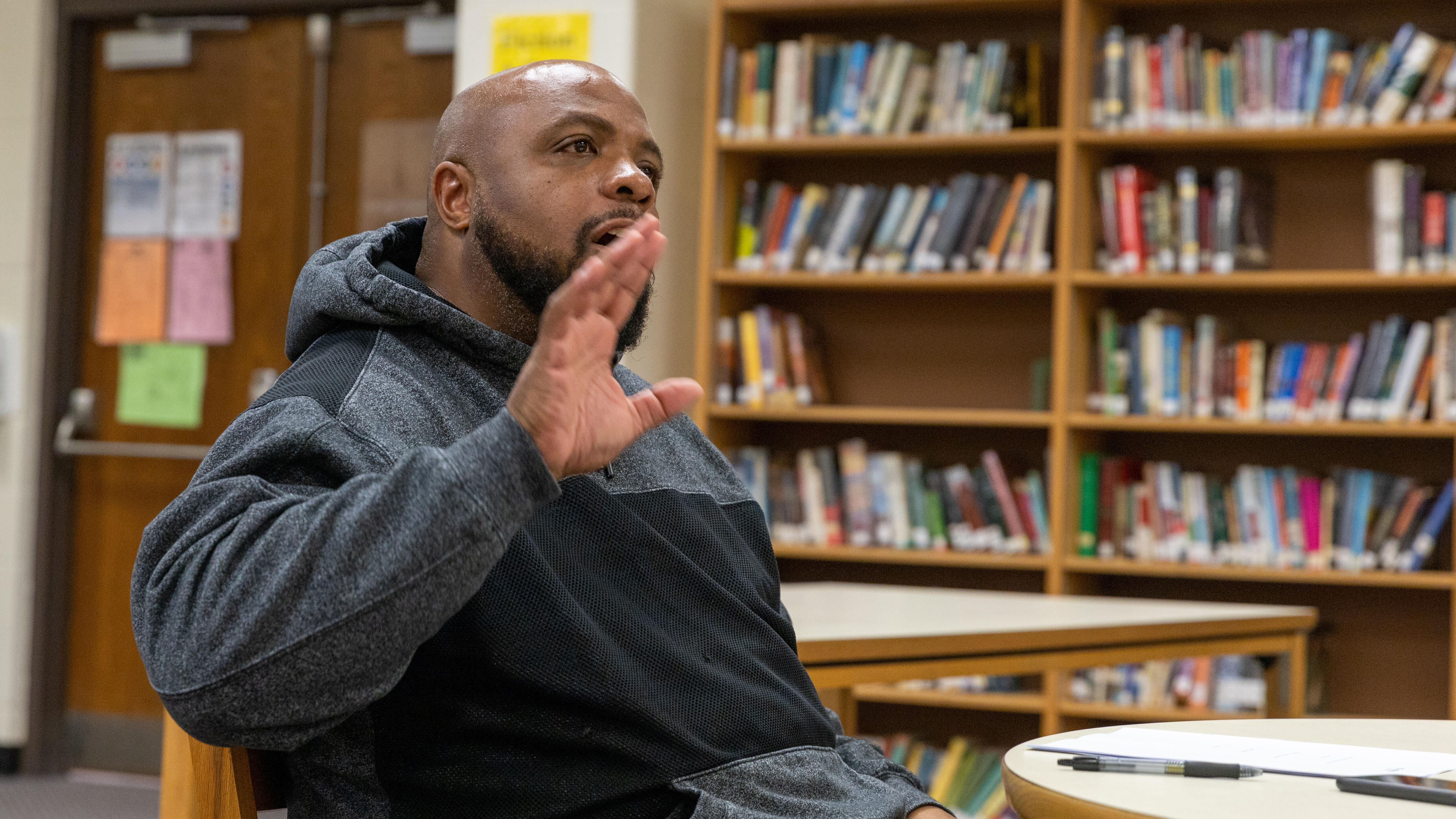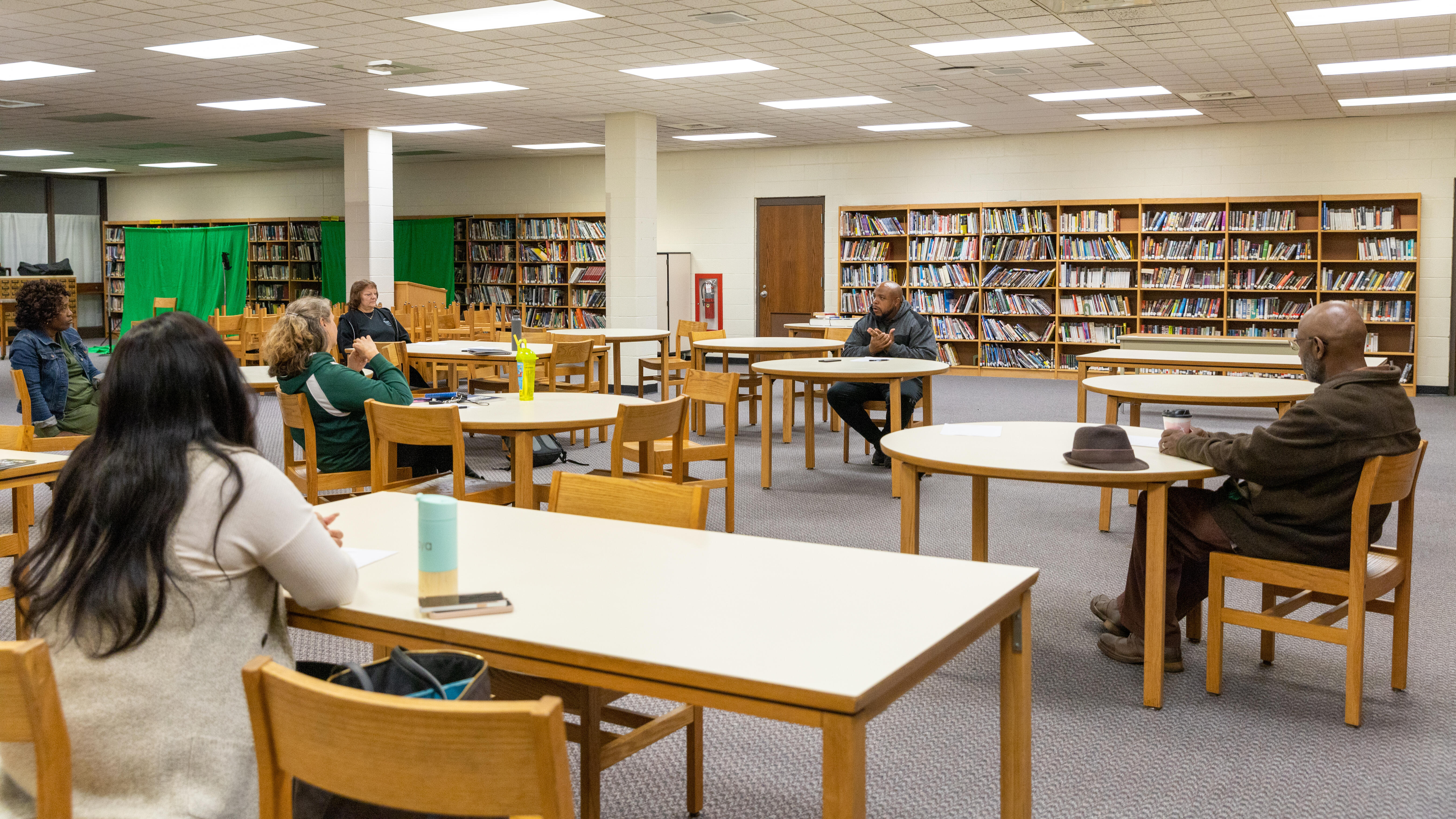
Prior to the pandemic, the Steel Valley School District had regular committee meetings to address the status of its A-TSI plans for the middle school and high school. Additional Targeted Support and Improvement (A-TSI) plans are put in place when a school has an achievement gap between students in different subgroups. Schools are tasked with devising ways to reduce those gaps through various programs and resources.
The meetings have resumed following a pause during the pandemic. During the most recent gathering, Diversity, Equity and Inclusion Coordinator Olando Dulin updated the committee members on the programs, resources, and tools the district is using as part of its A-TSI plan.
To help address the root causes of chronic absenteeism, tardiness, and suspensions, Steel Valley has added two new positions to the district. A community liaison and a family liaison were made possible through the district’s relationship with the University of Pittsburgh and The Pittsburgh Study, as well as from a grant through the Richard King Mellon Foundation. Kevin Clarke has been tapped as the community liaison, and it will be his responsibility to help connect students and families in the district with resources from our three communities. These resources could include activities for students, internships and job opportunities, health and wellness, and more.

The district registrar, Sara Fite, is serving as the family liaison. She’ll work with a newly formed family support committee to identify students who struggle with academics, attendance, tardiness, discipline, or other factors. She will make in-home visits to families to help identify ways the district can offer supports to improve those areas.
It was noted throughout the A-TSI meeting that students don’t always speak up about problems they might be facing or challenges in their lives. This is where teachers, staff, coaches, advisors and others in the school can help by keeping an eye out for various red flags that signal a student might be struggling. Struggling students will be connected with the district’s success coaches, all of whom are licensed social workers and capable of doing an initial assessment. From there, the success coaches can connect students and families with community and regional resources.
The committee also discussed the different tiers of support available to students. Tier I supports are resources that are available to all students, such as the 3Rs program through the Pittsburgh Study that provides relevant, racially affirming professional development to the staffs at Barrett and Park Elementary schools. Tier II supports are resources available through group sessions via programs like Creating Peace or Expect Respect. Tier III supports are individually targeted and are often one-on-one supports to address a student’s most critical needs.
Mr. Dulin added that the district has a new connection with a mentorship program through Mr. Clarke. Empower Teens to Thrive, or ET3, partners with the Violence Prevention Initiative at the University of Pittsburgh School of Public Health to provide mentoring to teens impacted by violence. ET3 is willing to train and provide compensation to adults interested in being a mentor.
Future A-TSI meetings will include additional updates about programs and resources that have been made available throughout the district as well as the latest data and summarized student performance metrics.

.png)
.png?mask=1)